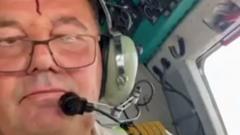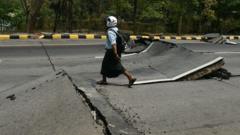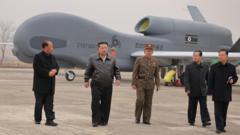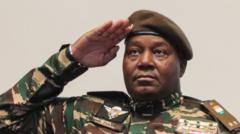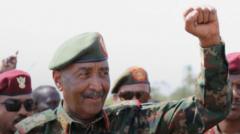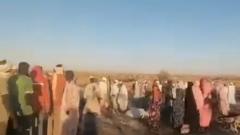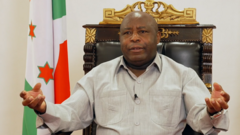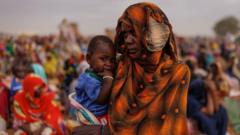After two years of conflict, the Sudanese military has gained significant ground as paramilitary Rapid Support Forces withdraw from Khartoum, marking a possible turning point in one of Africa's largest wars.
### Shift in Sudan's Civil War as Forces Retreat from Khartoum

### Shift in Sudan's Civil War as Forces Retreat from Khartoum
Sudanese military captures key territory as paramilitary forces withdraw, signaling a potential shift in the conflict.
In a notable development this week, the Sudanese military has begun to drive out the Rapid Support Forces (R.S.F.) from Khartoum, where they had held a strong presence since the outbreak of civil war nearly two years ago. The army's success in capturing critical areas, including the presidential palace, signals a shift in the ongoing conflict that has resulted in the deaths of approximately 150,000 people and displaced over 13 million from their homes.
Drone surveillance footage revealed a substantial withdrawal of R.S.F. fighters crossing a vital escape route south of the capital at Jebel Aulia, with military officials claiming to have overrun their last camp within Khartoum. Brig. Gen. Nabil Abdullah, a spokesperson for the army, described the victory as a major step, stating, "Only a few remnants remain in pockets. They will soon be destroyed."
The civil war began as tensions rose over a failed agreement to integrate the R.S.F. into the national military, leading to violence between the two factions. As armies clashed, civilians suffered severe consequences. Witness accounts detailed harrowing stories of violence, including rapes and collective massacres. With nearly four million refugees flooding neighboring countries, the conflict also ranks as the world's largest displacement crisis.
Amidst the turmoil, civilians in areas like Kalakla erupted in celebration upon seeing military forces entering their neighborhoods, signifying hope amidst despair. The military's control has expanded, encompassing the airport and other key infrastructure. Although sporadic fighting continues, the momentum appears to favor the army as they secure areas around the capital and move further into the territory previously controlled by the R.S.F.
As the situation evolves, the full implications of these developments on Sudan's long-term stability remain to be seen.
Drone surveillance footage revealed a substantial withdrawal of R.S.F. fighters crossing a vital escape route south of the capital at Jebel Aulia, with military officials claiming to have overrun their last camp within Khartoum. Brig. Gen. Nabil Abdullah, a spokesperson for the army, described the victory as a major step, stating, "Only a few remnants remain in pockets. They will soon be destroyed."
The civil war began as tensions rose over a failed agreement to integrate the R.S.F. into the national military, leading to violence between the two factions. As armies clashed, civilians suffered severe consequences. Witness accounts detailed harrowing stories of violence, including rapes and collective massacres. With nearly four million refugees flooding neighboring countries, the conflict also ranks as the world's largest displacement crisis.
Amidst the turmoil, civilians in areas like Kalakla erupted in celebration upon seeing military forces entering their neighborhoods, signifying hope amidst despair. The military's control has expanded, encompassing the airport and other key infrastructure. Although sporadic fighting continues, the momentum appears to favor the army as they secure areas around the capital and move further into the territory previously controlled by the R.S.F.
As the situation evolves, the full implications of these developments on Sudan's long-term stability remain to be seen.


